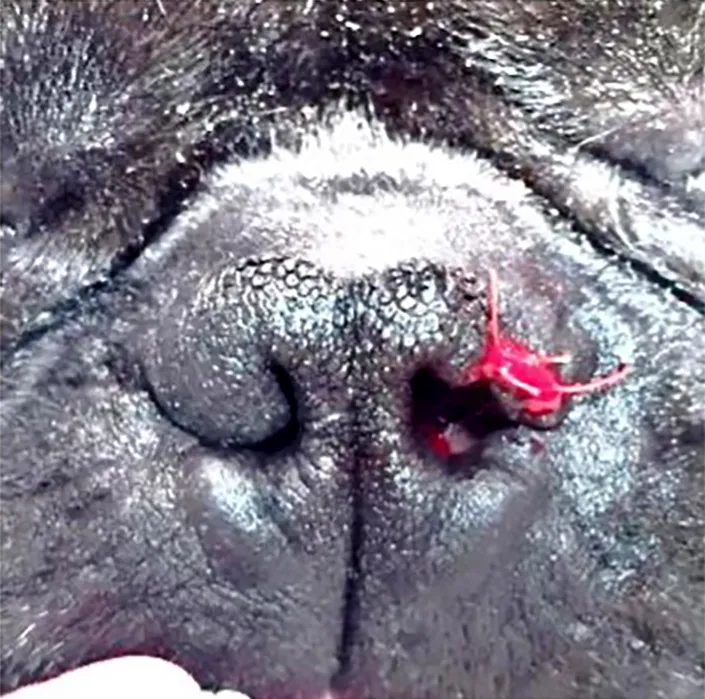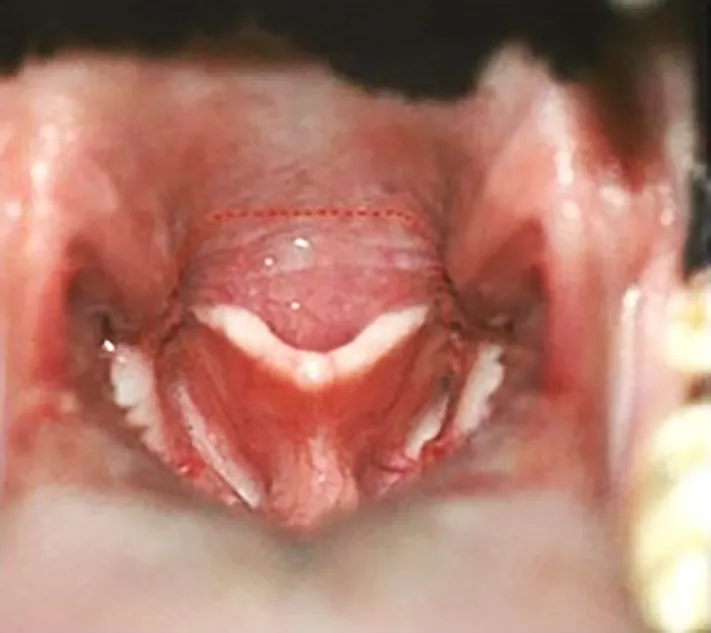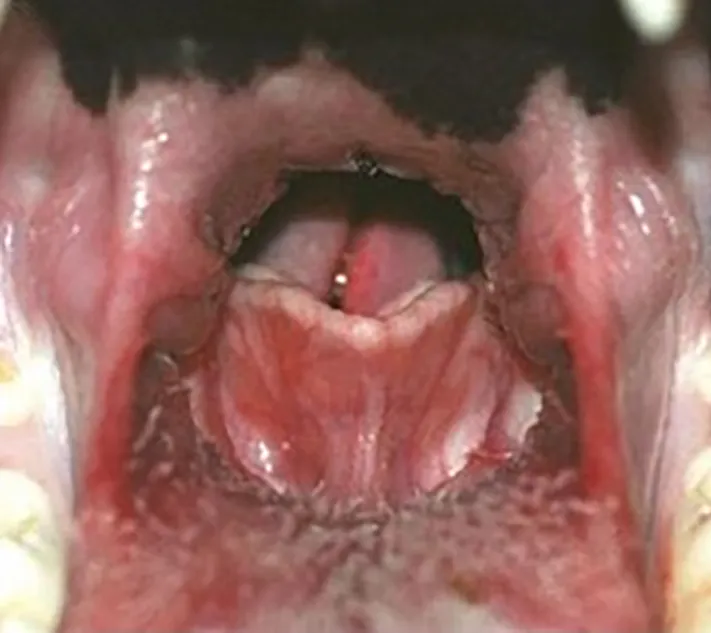B.O.S. syndrome
Dogs with a short nose are the breeds with a relatively short upper jaw like the English or French bulldog. Because of the anatomy of these breeds, almost every individual dog has difficulties breathing, one more than the other. The symptoms can vary from light snoring to serious obstructions of the airways.
Brachycephalic Obstructive Airway syndrome is a complex of conditions related to the upper respiratory. The symptoms can all occur in one dog at once, but that’s not always the case, or at least not that significant that it all causes complaints.
The anatomic deviations that lead to breathing difficulties are:
- Narrow nostrils
- Soft palate is too long/thick
- Enlarged tonsils
- Abnormal structure of the larynx
- Trachea too narrow
What causes brachycephalic obstructive airway syndrome?
Unfortunately, we as humans are the ones to blame for this. To continue breeding these short nosed dogs, the anatomic features, and therefore the consequences that come with it will continue to exist. It’s a genetic problem.
In which breeds do we see the B.O.S. syndrome?
The most common brachycephalic breeds are the English and French bulldog, but also the Pug, Boxer, Boston terrier, Pekinese, Lhasa Apso, Cavalier King Charles spaniël, Shar-pei, Shih tzu and Chowchow are breeds that have these problems regularly.
What are the symptoms?
Symptoms vary in severity depending on the deviations, but almost every dog of the brachycephalic breeds snores, one more than the other. Although some humans find this ‘’funny’’ or ‘’cute’’ it really is not, because these dogs definitely have difficulties breathing.
Other symptoms are:
- A rattling noise while breathing
- Quickly out of breath, especially in state of excitement
- Danger of overheating when the weather is hot
- Coughing
- Retching
- Serious shortness of breath with unconsciousness and death as result happens!
Although a lot of these dogs might live their life without serious problems, the symptoms can increase during the years.
Dangers for dogs with B.O.S. syndrome
Overheating
Panting is a normal mechanism for a dog to cool down. But for dogs with B.O.S. syndrome a lot of panting can lead to extra swelling of the anterior airways and this causes the difficulty of breathing getting worse and worse. Excitement, exercise, heat and especially a combination of these factors can cause serious oxygen deficiency and overheating. When this occurs, these dogs are absolutely emergency patients and have to go to a vet immediately.
Anesthetics
All brachycephalic dogs have a higher risk when going under anesthetics (there’s a chance on further obstruction of the airways). By extra precautions we take regarding to the sedatives and good monitoring of the patient, the chance of complications of the anesthetics are almost zero. What’s most important is that a brachycephalic dog has to be intubated at all times while under anesthetics!
How do we diagnose B.O.S. syndrome?
With the story of respiration problems and a physical exam, we can easily tell you if your dog has B.O.S. syndrome. If we see dogs that breath hearable, (or sometimes even with a lot of noise) the vet can tell you about the possible dangers and make a plan to figure out the seriousness of the problems in your dog personally. With clinical problems like gagging or serious shortness of breath it’s necessary to sedate the dog and do an extensive inspection of the throat. With this inspection, the vet can examine the length of the soft palate, the tonsils and the shape of the larynx. To know if the trachea is to narrow, we have to make x-rays.
How can we treat B.O.S. syndrome?
Mild cases
Like said before, snoring is so common in (almost) every brachycephalic dog, that people see it as normal or even cute. But it isn’t. These dogs do have troubles with breathing and also a higher risk when excited, stressed or with hot weather. In mild cases, a small surgery in which we only enlarge the nostrils, can already be very beneficial.

More severe cases
With more and frequent complaints of (for example) fainting, coughing and gagging, the treatment depends on the seriousness of the problems. Enlarging the nostrils and shortening the soft palate will lead to a drastic improvement for these dogs. Unfortunately it’s not possible to do something about a trachea that’s too narrow......


Emergency cases
For patients with acute problems, the most important elements of treatment are: provide oxygen, corticosteroids and cooling if necessary. When the patient is stable, the surgical procedure of enlarging the nostrils and shortening the soft palate is needed.
Prevention of clinical problems
- Extra caution is needed concerning brachycephalic dogs with; extreme exercise, stress or hot weather. Letting a brachycephalic dog do a lot of exercise on a hot summer day is asking for problems.
- Overweight/obesity needs to be avoided at all times. Obstruction of the airways is a lot worse for a dog that’s overweight.
Possible complications after surgery
In the week after the surgery, the noises that you hear from the dog (like snoring), can sound even worse than before the surgery. Also you can see more gagging, or frequent swallowing. In the beginning the dog can cough up some blood as well. All this will improve the days and weeks after the surgery when the wounds are healing and the stitches dissolve. The dog will be so happy to breath easier after all this!
Sliding hiatal hernia
If your dog keeps having problems after the surgery like; drooling, frequent swallowing, coughing and less of an appetite, we can probably speak of a sliding hiatal hernia (a fracture of the diaphragm). This is a congenital defect, that can get worse if the dog has B.O.S. syndrome as well. If the dog tries to breath with a (partly) closed throat, the negative pressure in the chest cavity, a part of the stomach and oesophagus will be sucked into the chest by the diaphragm. This causes gastric acid to flow into the oesophagus. In 20% of the cases the B.O.S. surgery will fix this problem because it helps to improve the airflow, but unfortunately this is not enough for every patient. Sometimes it helps to feed the dog small portions of food during the day and feed on eyelevel. What also can help is to give antacids. If this doesn't help, it’s possible that another surgery is needed, in which they have to secure the stomach to keep it in place.